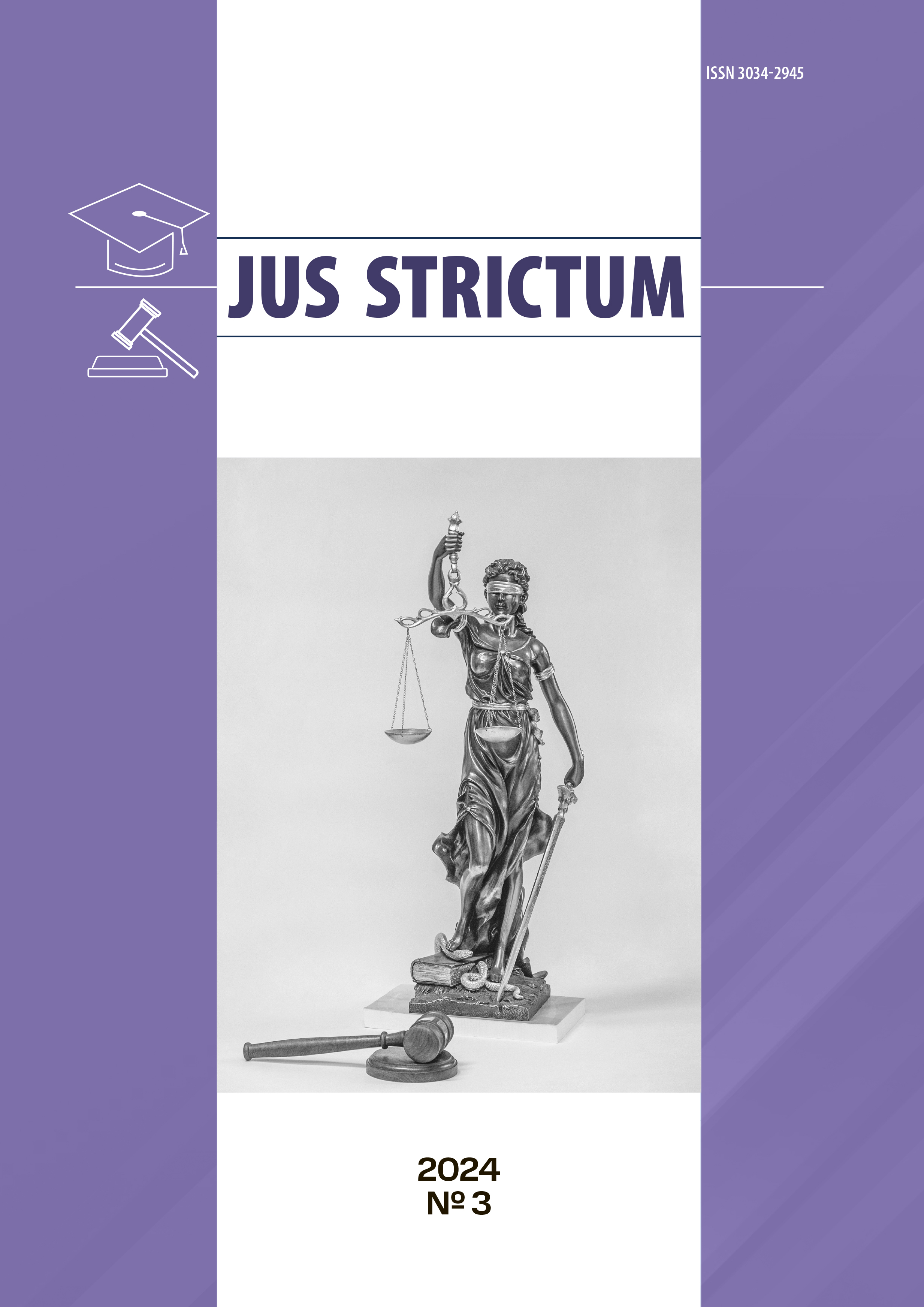Abstract
The ambiguity of interpretation of the rules applied when challenging transactions within the framework of the initiated bankruptcy case and the absence of clear criteria for the grounds for challenging debtor’s transactions determine the reasonability of a deep comprehensive theoretical study of such categories as abuse of rights, unequal counter-execution, and artificial debt. The conducted analysis of judicial practice allowed concluding that invalid debtor’s transactions concluded with abuse of rights in order to create artificial debt or with unequal counter-execution are identified by signs, based on the personal conviction of a judge, but still allowing them to be established with a high degree of reliability. Such signs, in particular, include: economic inexpediency of a transaction, when, for example, in the presence of financial difficulties, the debtor sold the capital goods, thereby depriving himself of his main activity and profit; transfer of funds by the debtor in transit through friendly organizations, returned to the debtor in the form of a loan from a controlled organization; raising of a cash loan from individuals who do not have the financial ability to provide a loan; the supplier’s inability to deliver goods for which the debtor has incurred a debt; the absence of information about the transaction in the accounting statements of the debtor and its counterparty, etc. The authors believe that the absence of grounds for liability for intentional actions to create artificial debt and abuse of rights, the absence of clear criteria for the equivalence of counter-execution lead to the fact that unfair participants in economic turnover receive an unjustified benefit. In this regard, the authors propose to define more clearly in the law special grounds for challenging debtor’s transactions for the intentional creation of artificial credit debt, the withdrawal of debtor’s assets, and to establish grounds for liability and consequences for unfair persons.







